The news is filled with the effects of events all over the world. The emphasis tends to be on dense population centers, and on politically important cities. I don’t live in one of those places. I live in in a small, quiet town in the White Mountains of New Hampshire.
As I write this, New Hampshire continues to document new cases of coronavirus, and new deaths each day. The Governor has extended the stay-at-home order to June 15, but has also implemented a “Stay-at-Home 2.0” plan, which allows the gradual opening of businesses. This is the sort of information that is easy to get from the many news services. The news today is also about protests in major cities. Here, we are a smaller, tighter, community. The events are smaller. But they are also poignant.
The schools announced a temporary shift to online learning in mid-March. Initially, the plan was to go until April 6. That seems like a long time ago now. At the end of April, it was announced that schools would not reopen and students would finish the rest of the year doing remote learning.
My son attends a combination middle-school and elementary. I drove him there to pick up a bag containing the contents of his locker. The school staff had emptied every locker and desk in the school, and put the contents into labelled paper bags.
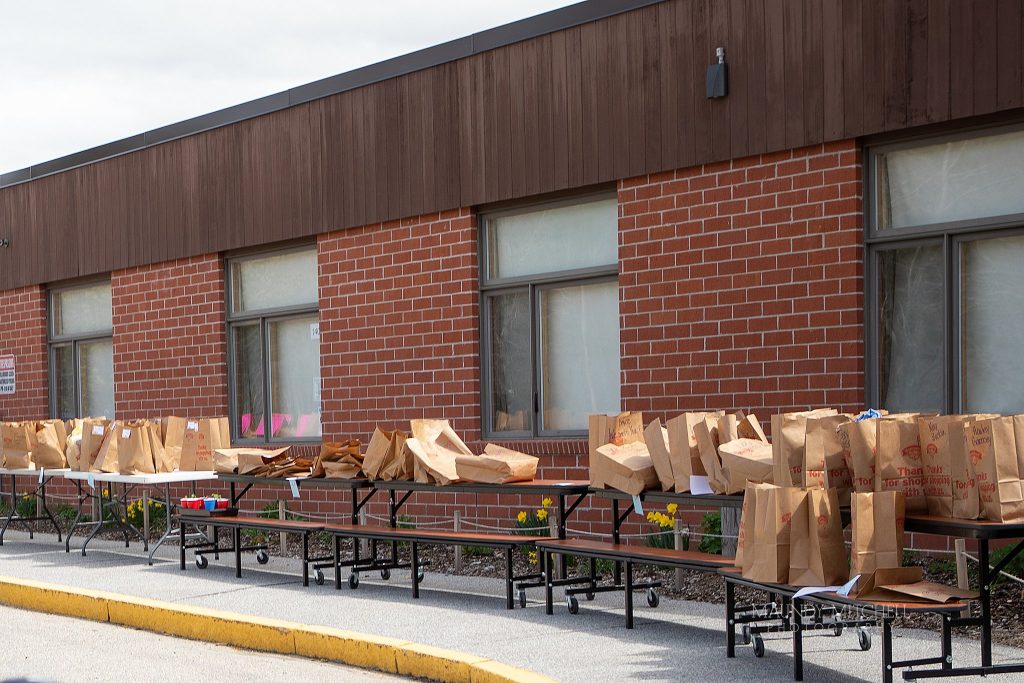
This is the only school in our town. We know all of the teachers and staff. This school has served as an emergency shelter for local families during floods. We attend concerts and games here with everyone we know. Shutting down this building near the end of the school year is sad for everyone.
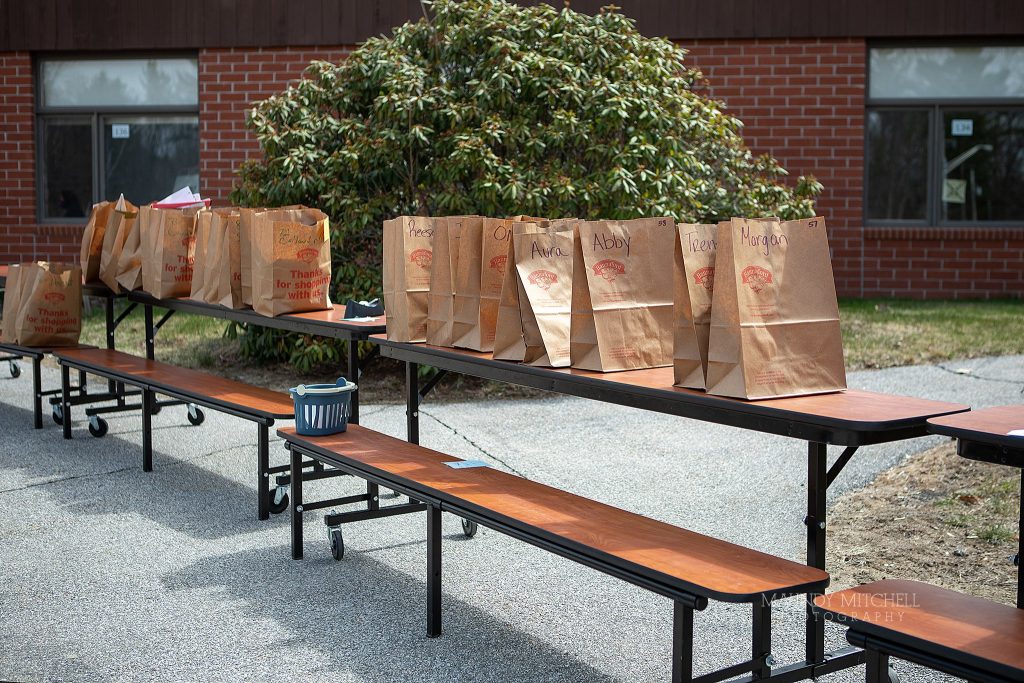
One of the perks of a small-town community is a culture of benevolence. People will give their time and talents, and are happy to receive that from others. Musician Dave Lockwood has been setting up his piano and playing music around town. Here, he has simply parked his piano on its trailer and plays happily in the grocery store parking lot.
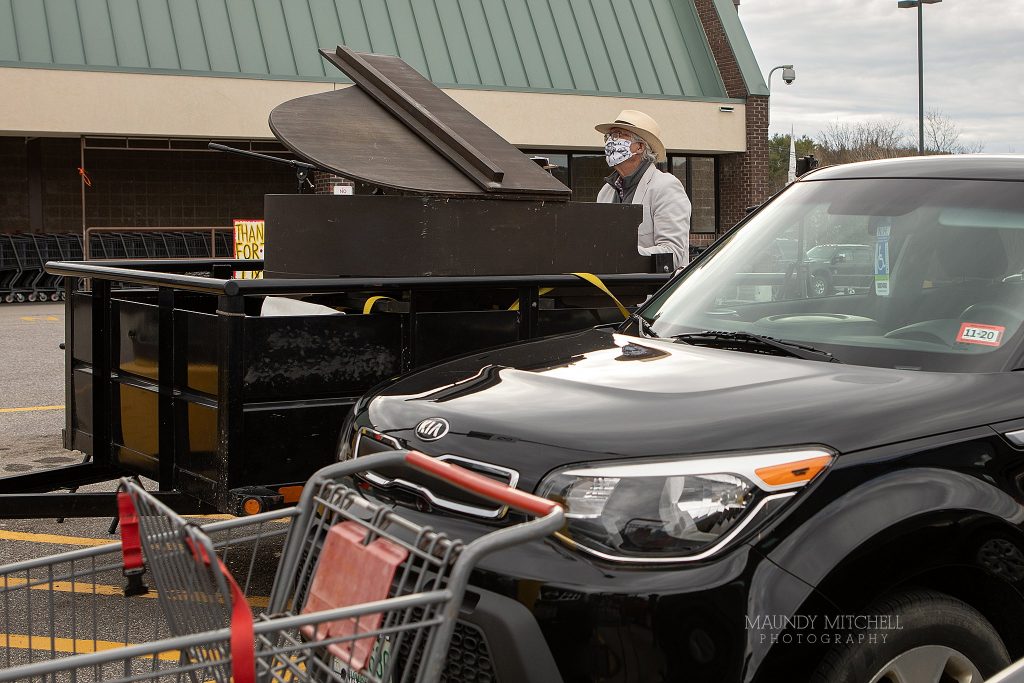
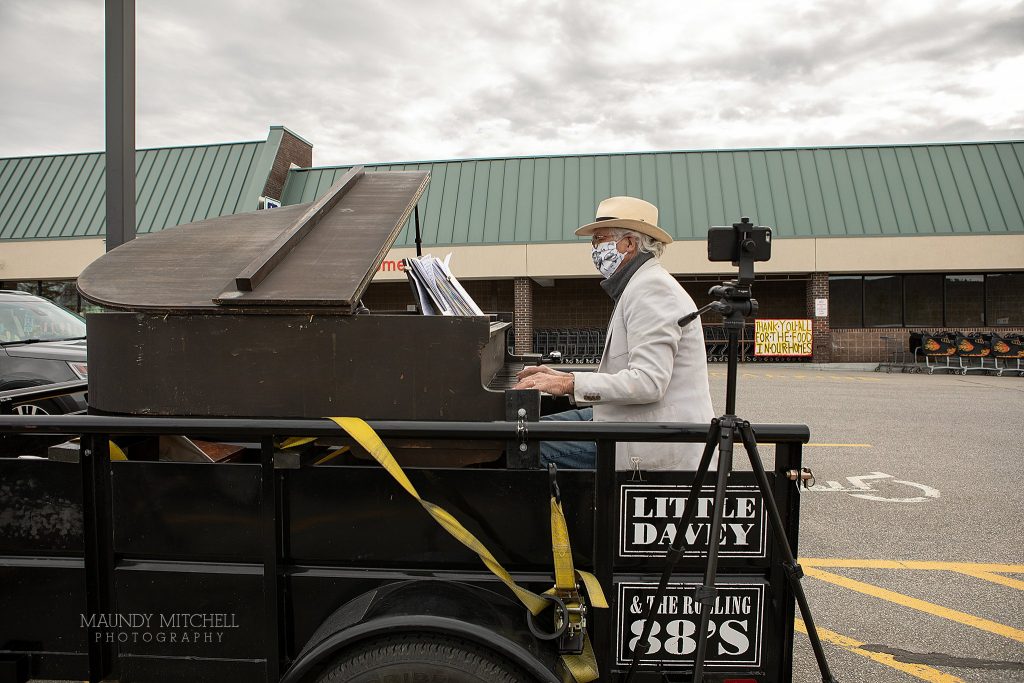
The new normal at the Plymouth post office, next door to my studio, includes windows which separate workers from customers. Some businesses in the area have used plastic sheeting or clear shower curtains and a lot of tape. No matter, Martha will still say hello.
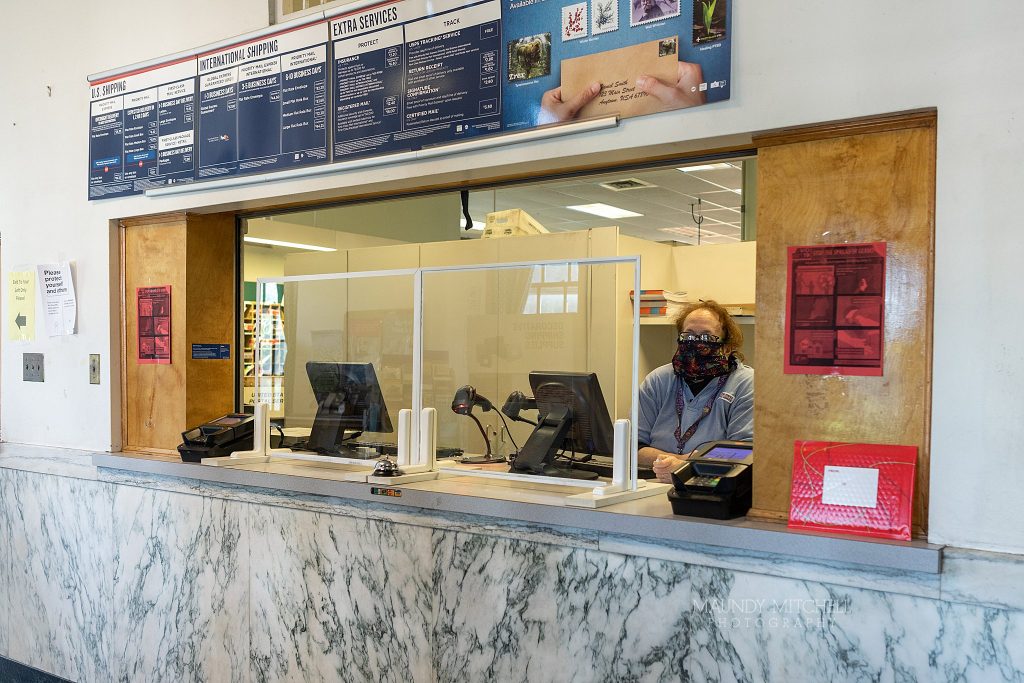
As of May 11, Turnage Barber Shop was allowed to open with restrictions. In normal times, there might be eight or ten people waiting inside Don’s shop.
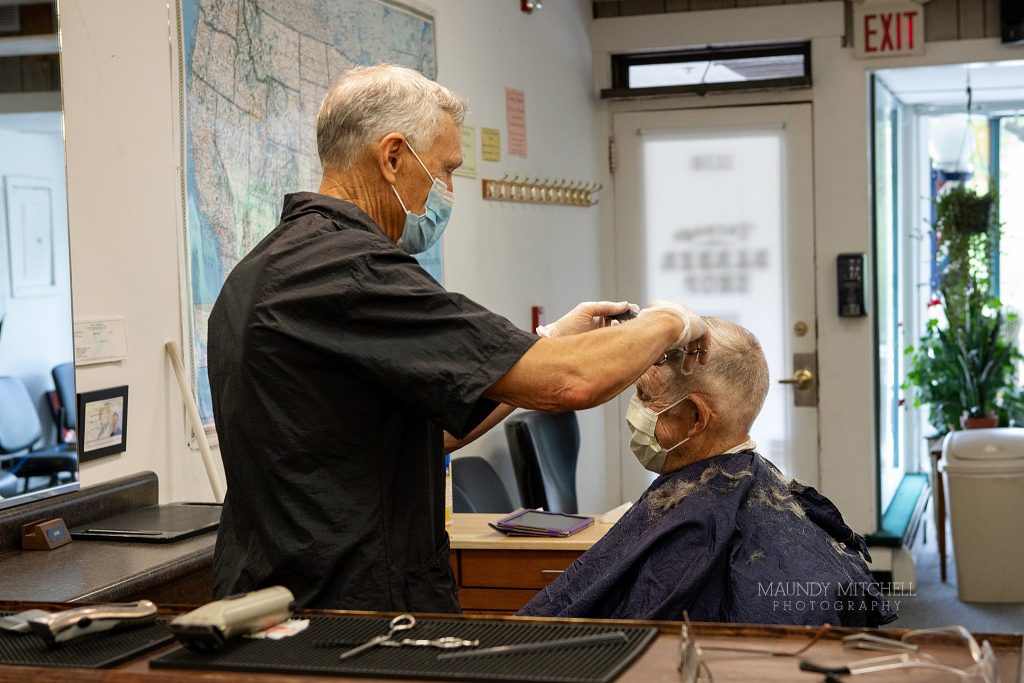
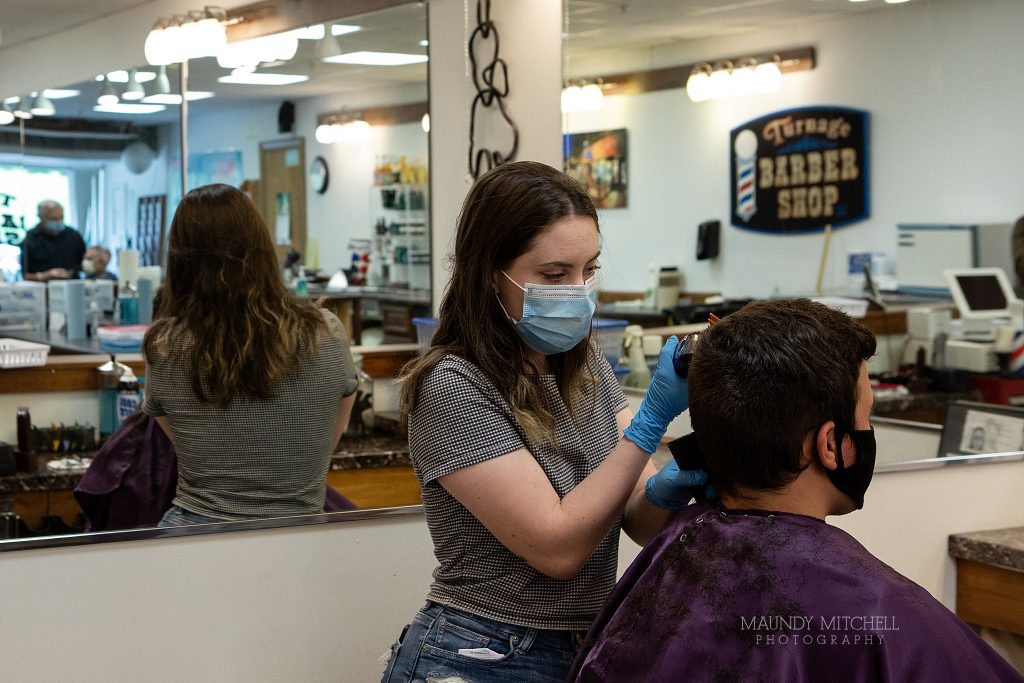
Many people in the area have put out banners and other message boards. Artist Marcia Santore painted a neighborly sign to hang on her fence.
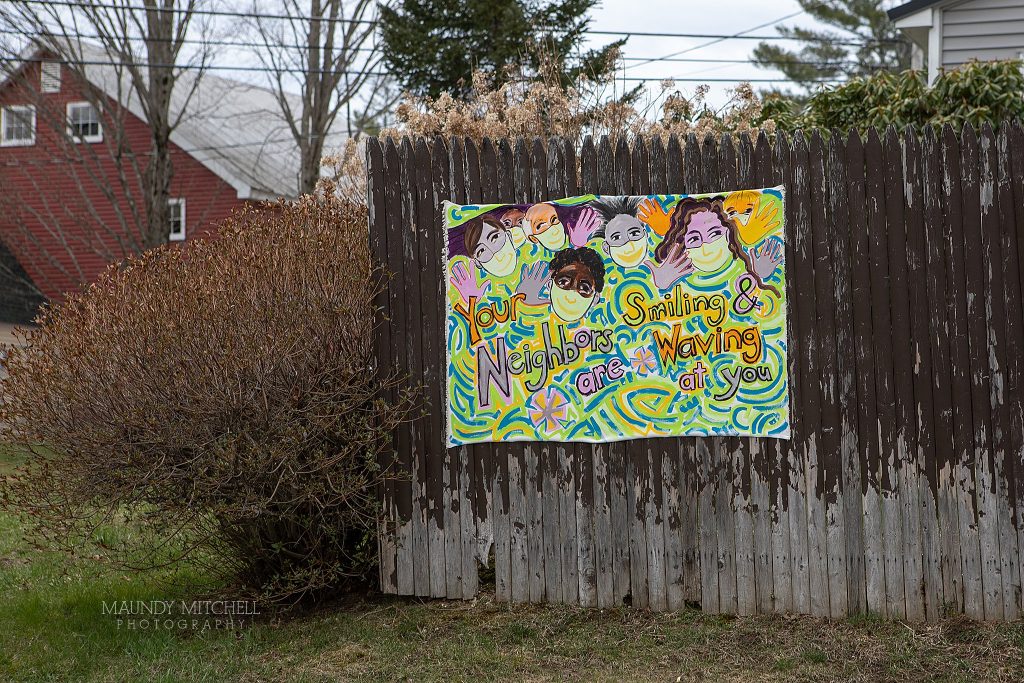
Restaurants have been allowed to serve takeout all along, and since May 18 have been allowed to serve customers outdoors. M n M Scoops on Main Street is normally full of people year-round, but especially in the summer. Currently the system is to call ahead and receive curb-side or front-door service.
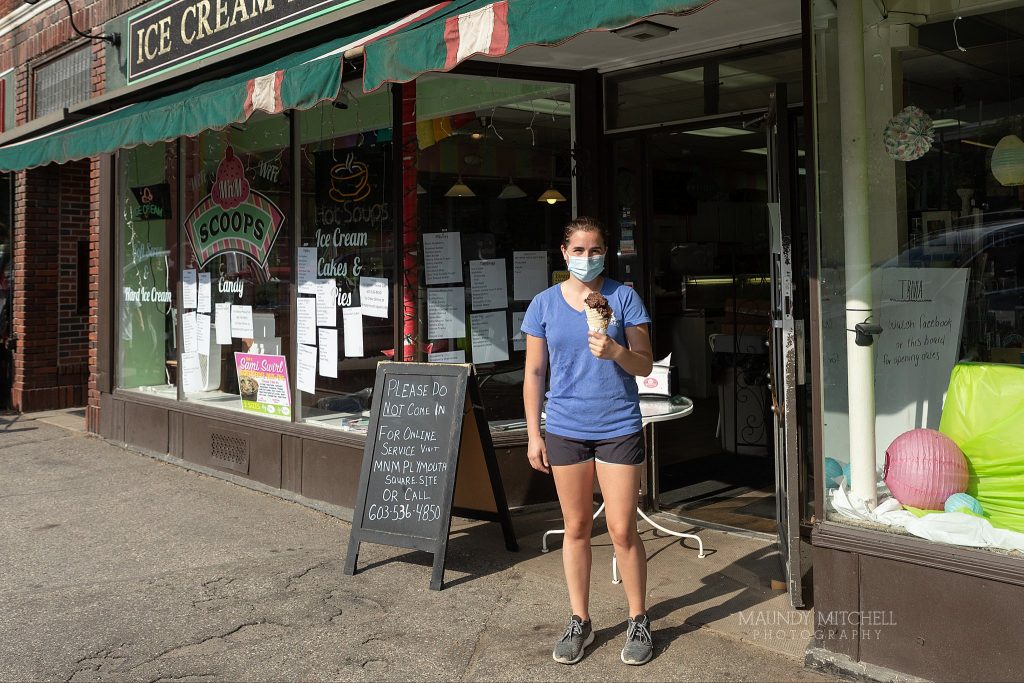
On May 1, the New Hampshire Department of Health and Human Services (DHHS) and New Hampshire Army National Guard announced this Plymouth testing site would be open seven days a week from 11am to 7pm. Anyone in NH who would like a test can get one. This facility is on north Main Street.
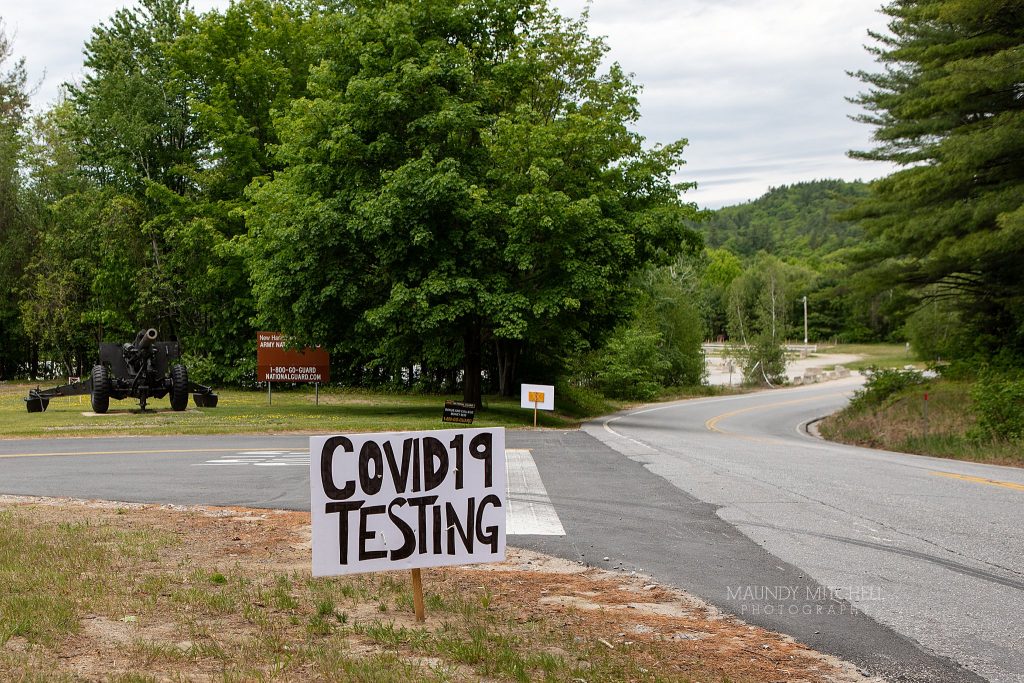
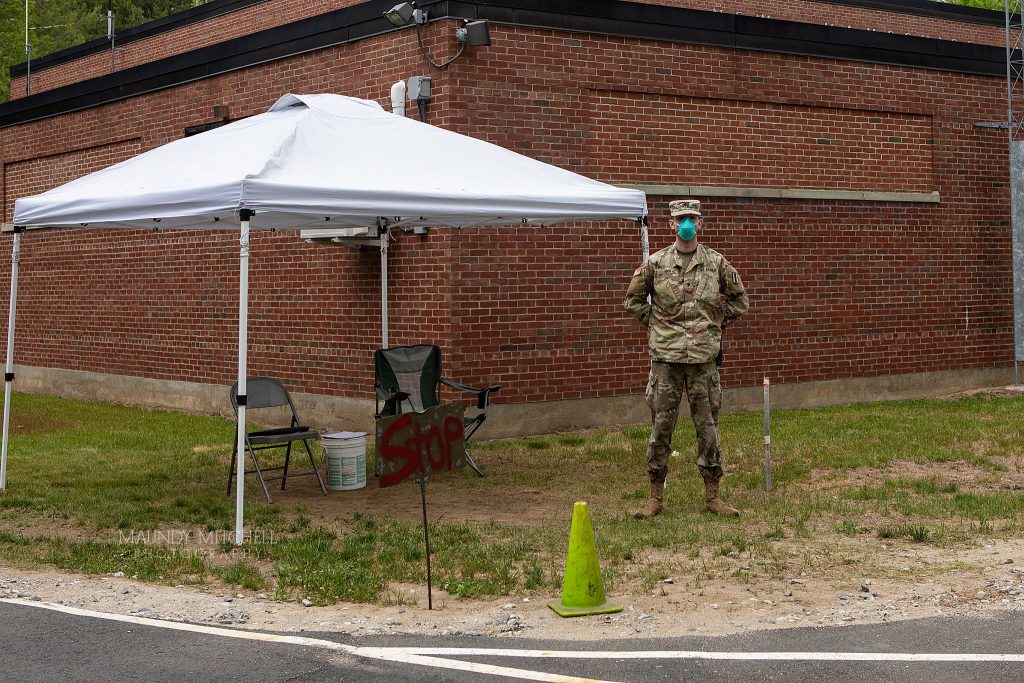
On May 25, 2020, George Floyd, a 46-year-old black man, died in Minneapolis, Minnesota after a white police officer knelt on his neck for almost nine minutes while Floyd was handcuffed and lying face down on the street. Floyd’s death has sparked protests across the U.S., calling for an end to racism and police brutality. Even the way we protest has been affected by the pandemic.
On the day that I photographed this family in front of my studio, the protests had just begun. It’s probably easier for our community to avoid an “us” and “them” mentality because so many of us know each other by name. We are fortunate that our police in Plymouth and the surrounding towns stand with the citizens against injustice. They are our friends and community members. While no place is entirely free of injustice, in general our small New England community seems polite and respectful of one another, even during these challenging times, even as we seek change.
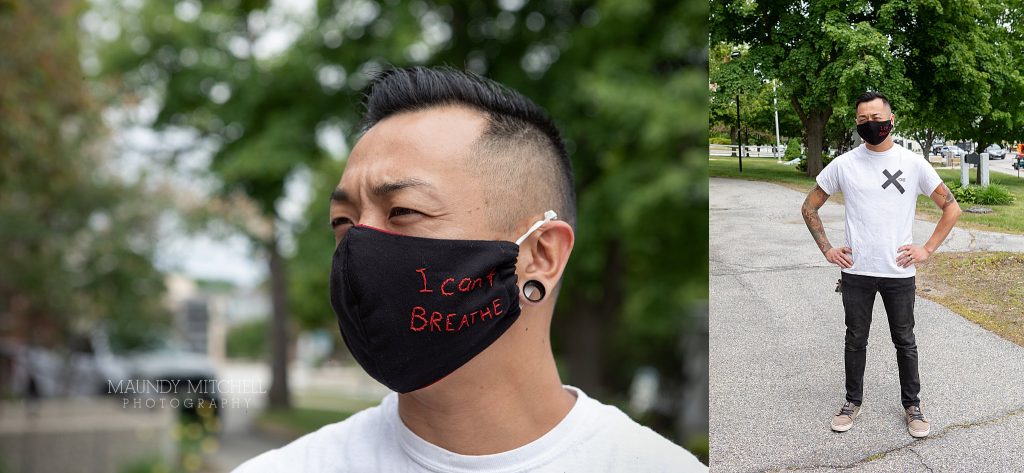
Michael and Estee started a group called NH Unites Against Racial Inequality and Injustice to organize peaceful protests. One of the protests drew nearly 200 people.
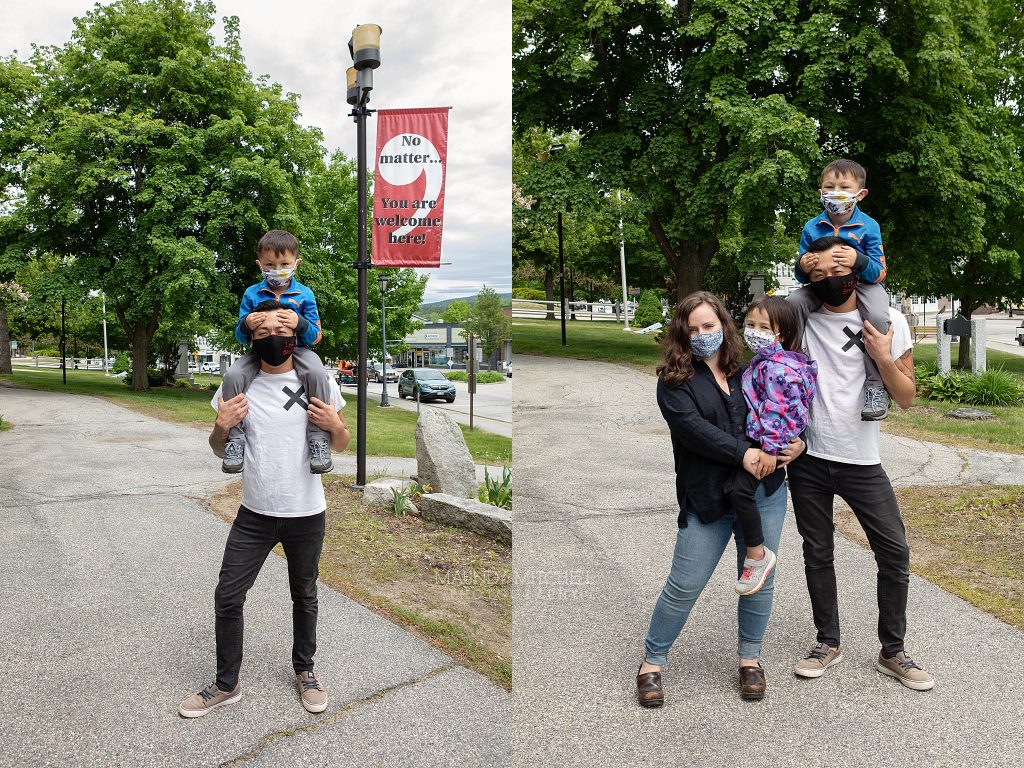
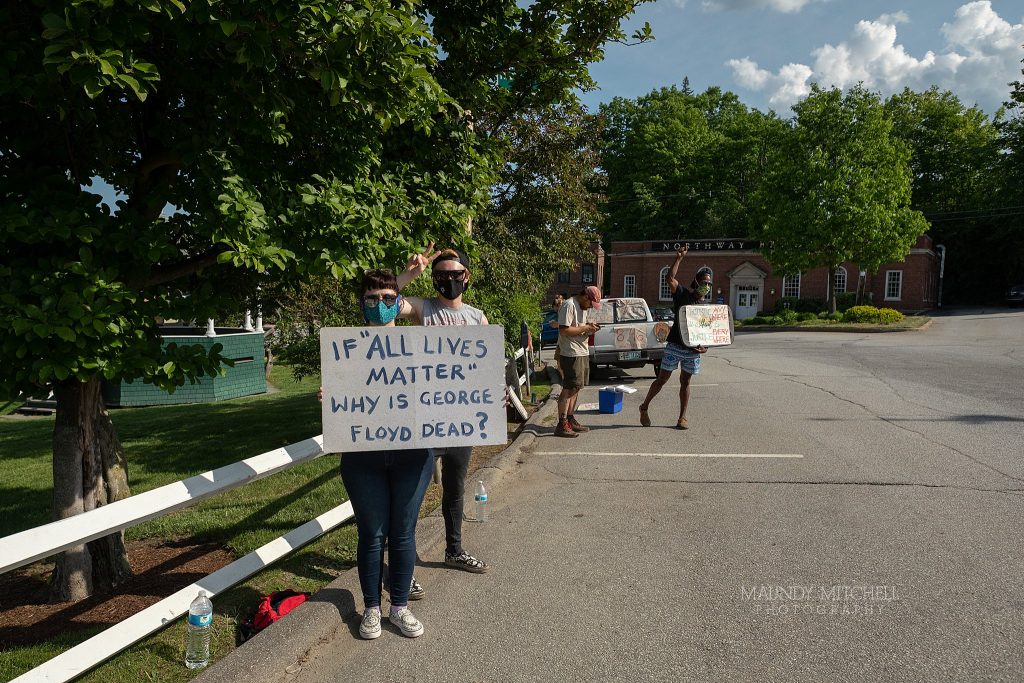
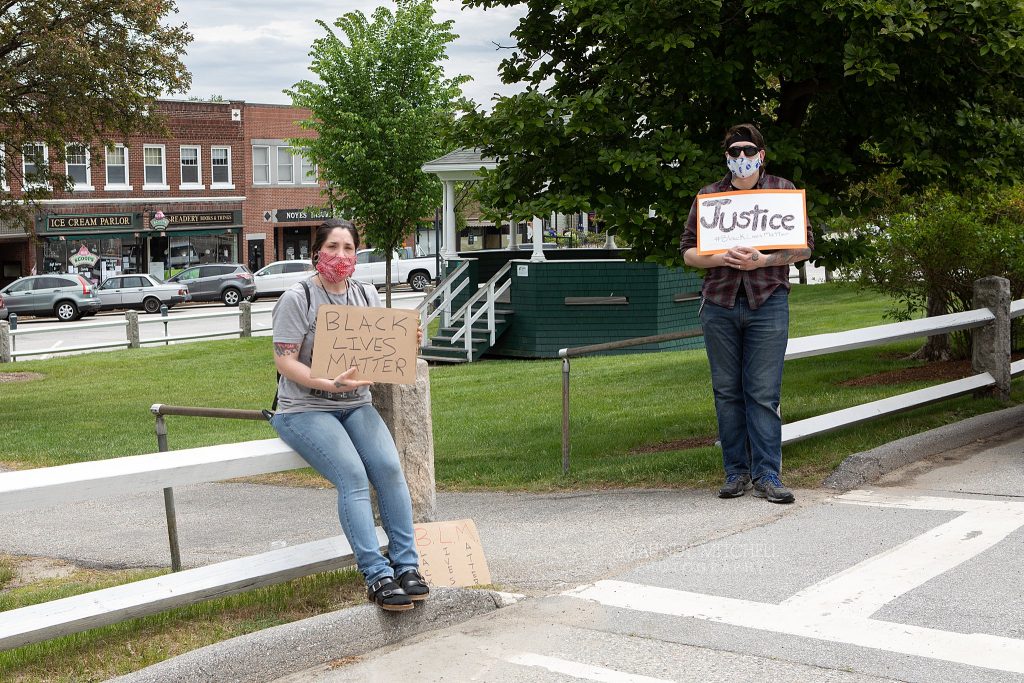
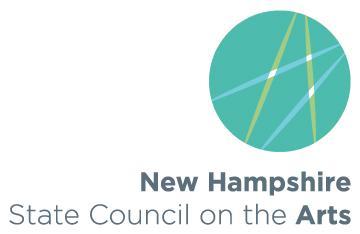
the New Hampshire State Council on the Arts
